
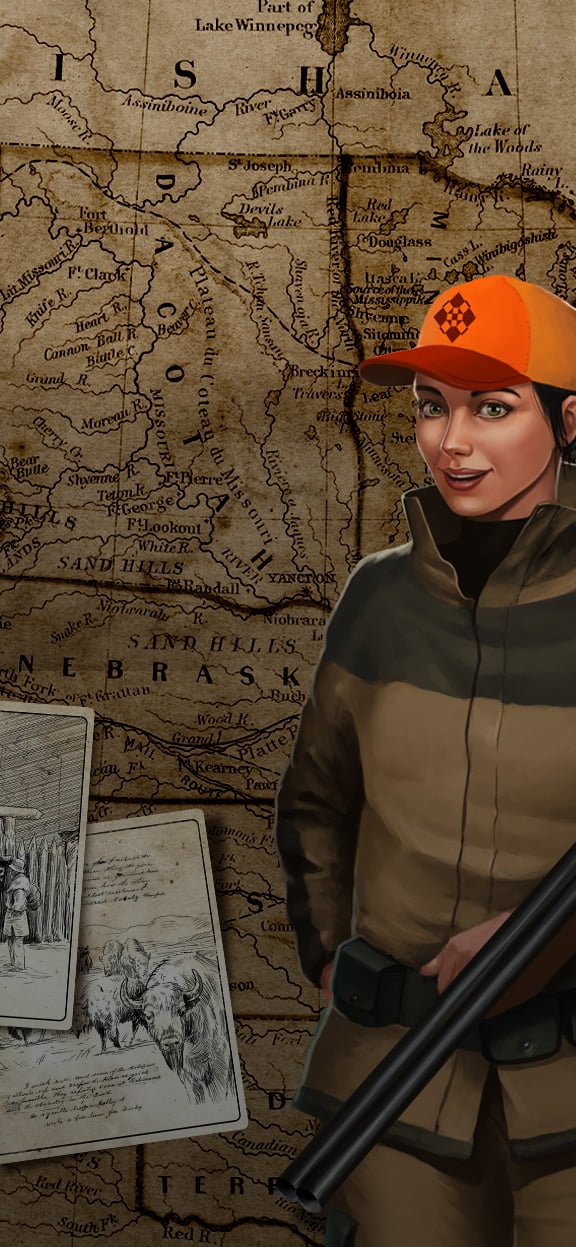


In a fascinating interview, representatives from Ten Square Games’ Services team shed light on the challenges, innovations, and collaborative efforts involved in delivering exceptional support, VIP services, and localization in the gaming industry. Grzegorz, Ewa, Patryk, Rafał, and Dominika share their insights, highlighting the team’s strategies for success and exciting projects on the horizon.
Grzegorz, can you provide an overview of the current challenges in the gaming market that the Services team is facing?

Grzegorz: Certainly. The gaming market is becoming increasingly competitive, with new games being released all the time. This means that our Services team needs to find ways to differentiate our company’s games from the competition. Additionally, the market has gone global, so we need to provide support in multiple languages and cultures. Games are also becoming more technically complex, which requires us to troubleshoot intricate problems and provide technical support. Finally, players have high expectations for customer service, so we need to ensure we deliver fast, friendly, and efficient support.
As the team leader, how do you prioritize and address these challenges within the Services team?
Grzegorz: To tackle these challenges, we follow a systematic approach. First, we identify the challenges by conducting surveys, interviews in focus groups with the players, as well as monitoring social media and customer support tickets, of course. Then, we prioritize them based on their severity, impact on players, and available resources. We develop solutions through brainstorming, research, and prototyping, and implement them by training staff and deploying new tools. We measure the results by tracking customer satisfaction metrics. We also focus on specific areas, such as customer support, VIP account management, and localization, to address challenges more effectively.
Let’s start with customer support. Rafał, are there any noticeable trends or shifts in player expectations that you have observed recently? How is the Services team preparing to adapt to these changes?
Rafał: Player expectations are divided into expectations regarding the game itself and those towards the support team. Players increasingly expect companies to leverage technology and provide faster, better-tailored solutions. To adapt to these changes, our Services team looks for a way to utilize AI solutions, automates support processes, and stays updated on market trends. We collaborate with other teams, consult tool providers, and continuously monitor our actions’ effectiveness. However, we understand that the greatest value lies in our people, and their expertise is crucial in providing exceptional support.
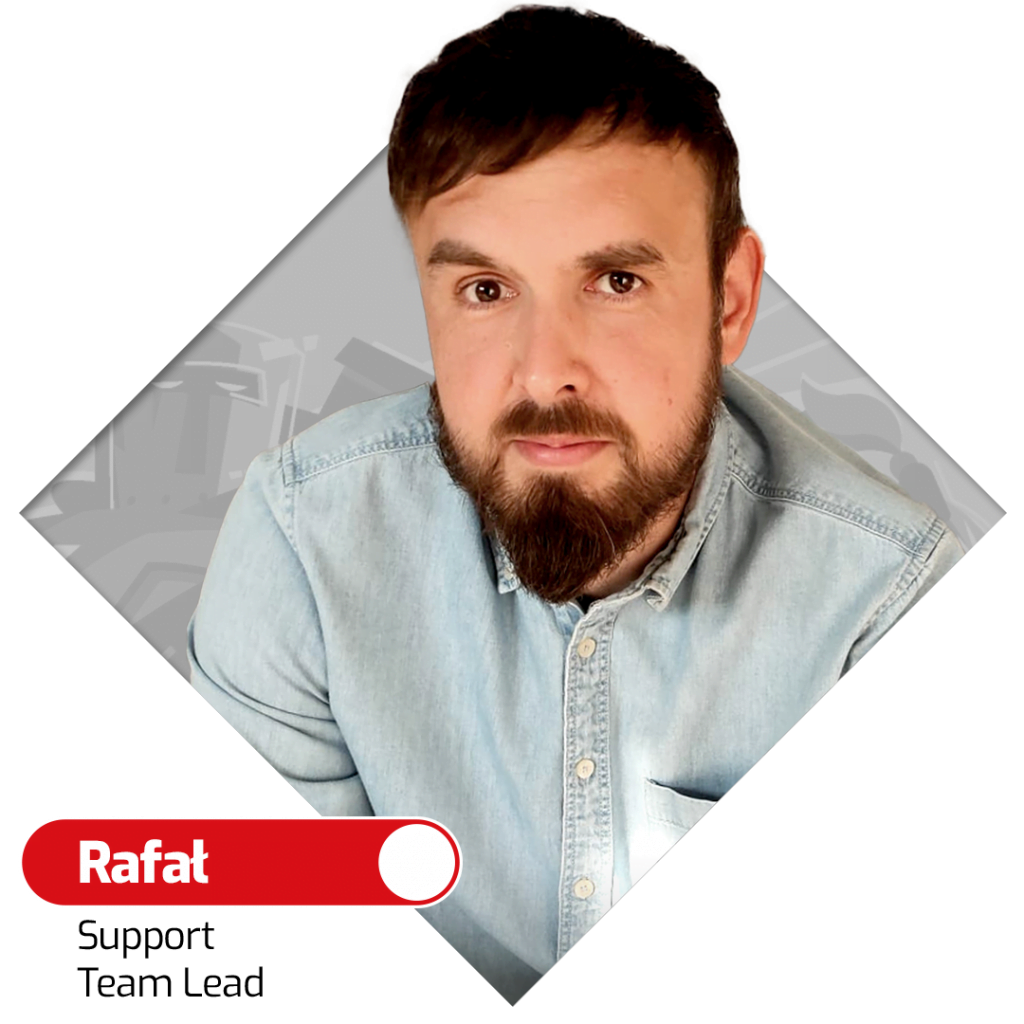
Dominika, from an operational perspective, have there been any notable changes in the team’s working methods or tools to streamline processes? How have these changes improved efficiency or player satisfaction?

Dominika: We have made several notable changes to optimize workflows and increase customer satisfaction. Firstly, we extended our support hours to 24/7, ensuring players have access to assistance at any time. Secondly, we improved our tools, enhancing ticket management, progress monitoring, and response times. These changes resulted in shorter resolution times, from days to hours or even minutes. Additionally, we have started incorporating AI solutions to automate support processes, filter and categorize reports, and provide faster and more accurate responses. These improvements have significantly improved efficiency and player satisfaction.
Yes, thank you for bringing the AI topic! Grzegorz, how has the use of AI or other advanced technologies impacted the work of the Services team? Are there any specific areas where AI has been particularly beneficial?
Grzegorz: AI has revolutionized the work of the Services team in the gaming industry. AI-powered chatbots handle routine inquiries, while NLP (Natural Language Processing) algorithms categorize and prioritize support tickets. Sentiment analysis helps identify potential dissatisfaction, and AI algorithms offer self-help resources for issue resolution. In VIP account management, AI enables personalized recommendations, predictive analytics for retention, and automated rewards. AI-powered machine translation aids in localization, including cultural adaptation and automated testing.
Rafał: I would like to add that AI-driven automation and ongoing collaboration with other teams (at the moment we cooperate with R&D team to implement a few solutions based on AI) will shape the future of our support services. We are excited about the possibilities that technology offers and are continually seeking ways to optimize our operations.

But for now, AI tools cannot replace human beings, especially in terms of communicating with the players, right?
Dominika: It is essential to emphasize that AI will never replace human relationships, which are crucial in customer service. AI is intended to assist our team in resolving problems more effectively and providing support, but it cannot replace human-to-human interaction.
Grzegorz: It’s worth noting that while AI technologies have made significant advancements, human involvement and expertise remain crucial in areas that require emotional intelligence, complex decision-making, and nuanced understanding of customer needs. Regular monitoring, fine-tuning of AI models, and continuous training of team members will help optimize the use of these technologies and improve overall performance.
Yes, I totally agree! Thank you for saying that. Moving on, Ewa, from a localization perspective, what are the key considerations and challenges in making our games shine on various global markets?
Ewa: Good localization should be invisible to players, making them feel like the game was created in their own language and culture. And that’s the mission of my amazing team: To give our games the look and feel that our players from different countries and regions expect. This involves accurate and culturally sensitive translation, going beyond word-for-word conversion. Challenges arise with puns, jokes, and idioms that don’t translate well.

To overcome these challenges, we create style guides and work closely with experienced linguists who adapt content rather than simply translating it. But localization also involves internationalization, cultural adaptation, compliance, quality assurance, and managing processes and resources, so it’s a complex process that requires a broad expertise, analyzing a lot of data and continuous focus.
Could you give us an example of the challenges which are the results of globalization?
Ewa: From day zero, we need to work with localization in mind because some design decisions made at the very beginning can affect the future of the product.
One example might be deciding whether we plan to expand to markets that use non-Latin alphabets (like Japanese, Chinese, or Thai) or languages that are written from right to left, like Arabic and Hebrew. The latter requires us to design the game UI so that it can be “mirrored”. And Arabic is one of the fastest growing languages in game localization, so it’s a real shame to lose a chance to conquer this market, isn’t it?
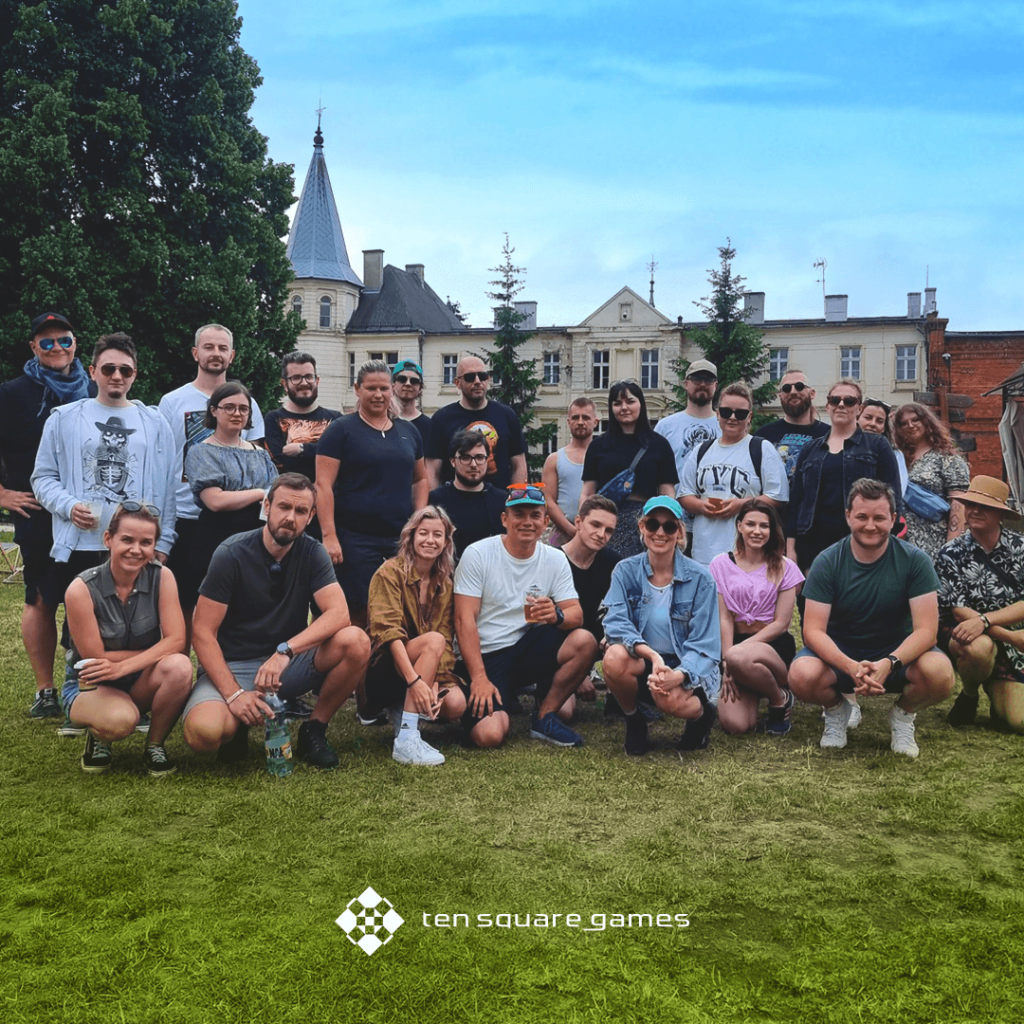
It totally is! But how do you make sure that everything you employ is accurate and culturally sensitive?
Ewa: The short answer to that? People we can always rely on, robust but flexible processes, and the right tools. We approach localization strategically through a blend of technology and human expertise. And we constantly gather feedback and insights on our localized content. With the invaluable support of our fantastic VIP team, we’ve built strong relations with our players—this helps us stay authentic and culturally aware in our diverse markets.
Patryk, as a newly appointed VIP team leader, where are you planning to take the team? What is your way forward in both the short and the long term?
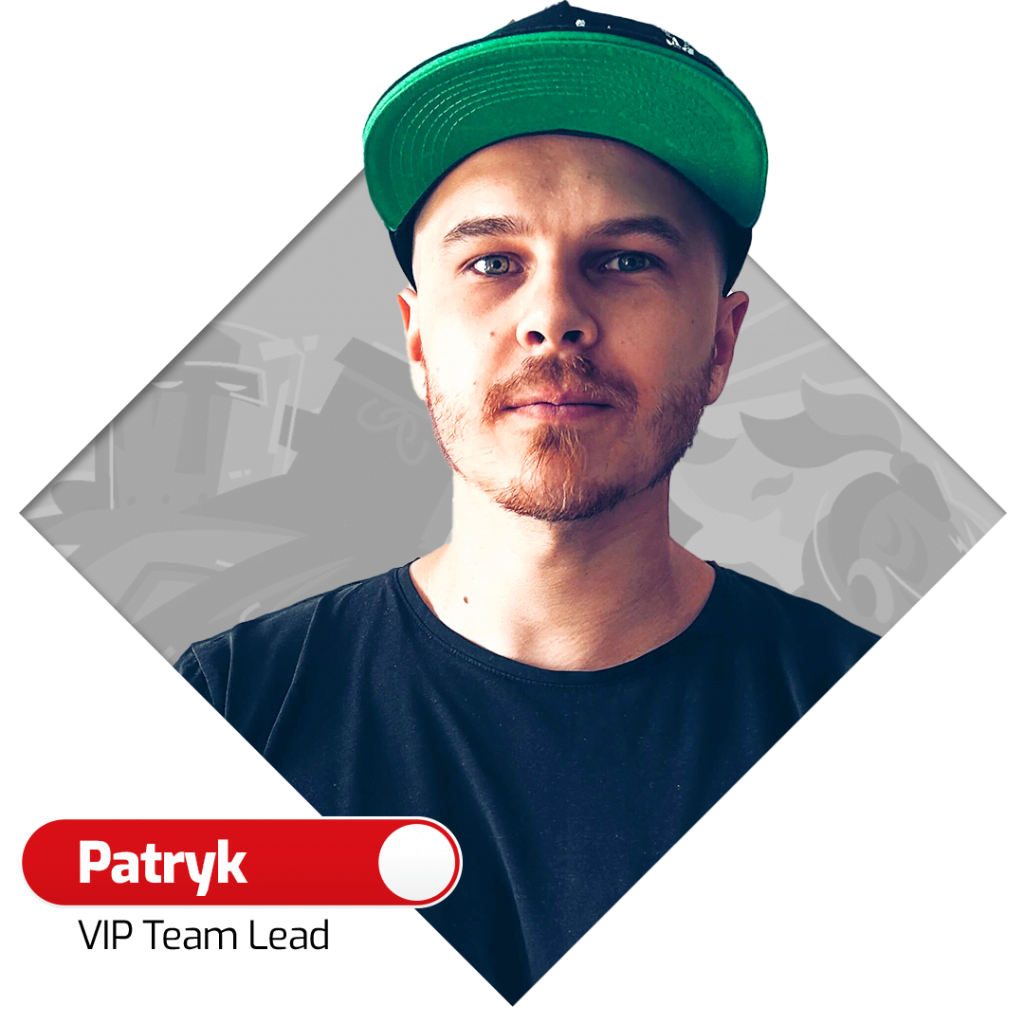
Patryk: I’m a strong believer in iterating – thus, I much prefer for the team to evolve over time, to improve what we do thoughtfully, rather than revolutionize things right from the start. Being promoted from within the team, I have enough insight to know the latter is not the way for us to go. To begin with, I aim to improve our retention and reactivation efforts – to focus on retaining our VIP playerbase, which is crucial in this post-covid reality. We’re currently testing different approaches to email reactivation and we’re already seeing promising results of these campaigns.
In the VIP department, you also carry out non-standard activities. Could you elaborate on what these activities entail and how they enhance the overall player experience?
Patryk: Yes, we’re always trying to find new ways of making access to VIP chat fun and exciting! I think it’s important to first talk about our approach – which promotes openness and interest in the player as a human being. We often talk about things not related to the game at all – sharing photos and experiences from vacation or the weekend, for example. From time to time, we send our players riddles and challenges for a reward, which can be anything from little jokes to real brain teasers. But that’s not all! We also send out real, physical gifts – both personalized to the player and game-related. These are a great way to show our appreciation. Apart from that, we also organize video meetings with our most dedicated and influential players, where we get to meet them (almost) face to face, introduce ourselves, and hear their feedback first-hand!
OK everybody, are there any upcoming projects or plans that the Services team is excited about? How do you envision these projects shaping the future of support, VIP services, or localization within the company?
Dominika: While we can’t disclose all the details, we are particularly excited about the TSG Store project. It will provide players with a new avenue to enhance their gaming experiences. Additionally, AI presents incredible opportunities for the future of game localization. We’re exploring AI-based tools to streamline processes and provide deeper insights into player behavior.
Ewa: Localization is also embracing AI, and we are testing AI-driven solutions to improve efficiency and quality. In the near future, we might witness games localized entirely by AI, revolutionizing the localization process.
Patryk: For the VIP team, we are focusing on improving retention and reactivation efforts, engaging with the TSG Store project, and being more present on social media. These initiatives will enhance player experiences and strengthen our relationships with VIP players.
Conclusion
The Services team at Ten Square Games is at the forefront of addressing challenges, embracing innovations, and ensuring exceptional player support, VIP services, and localization. Through their collaborative approach, leveraging AI and advanced technologies, and aligning with evolving player expectations, they are shaping the future of gaming services. With exciting projects on the horizon, Ten Square Games continues to push boundaries and deliver outstanding experiences for players worldwide.
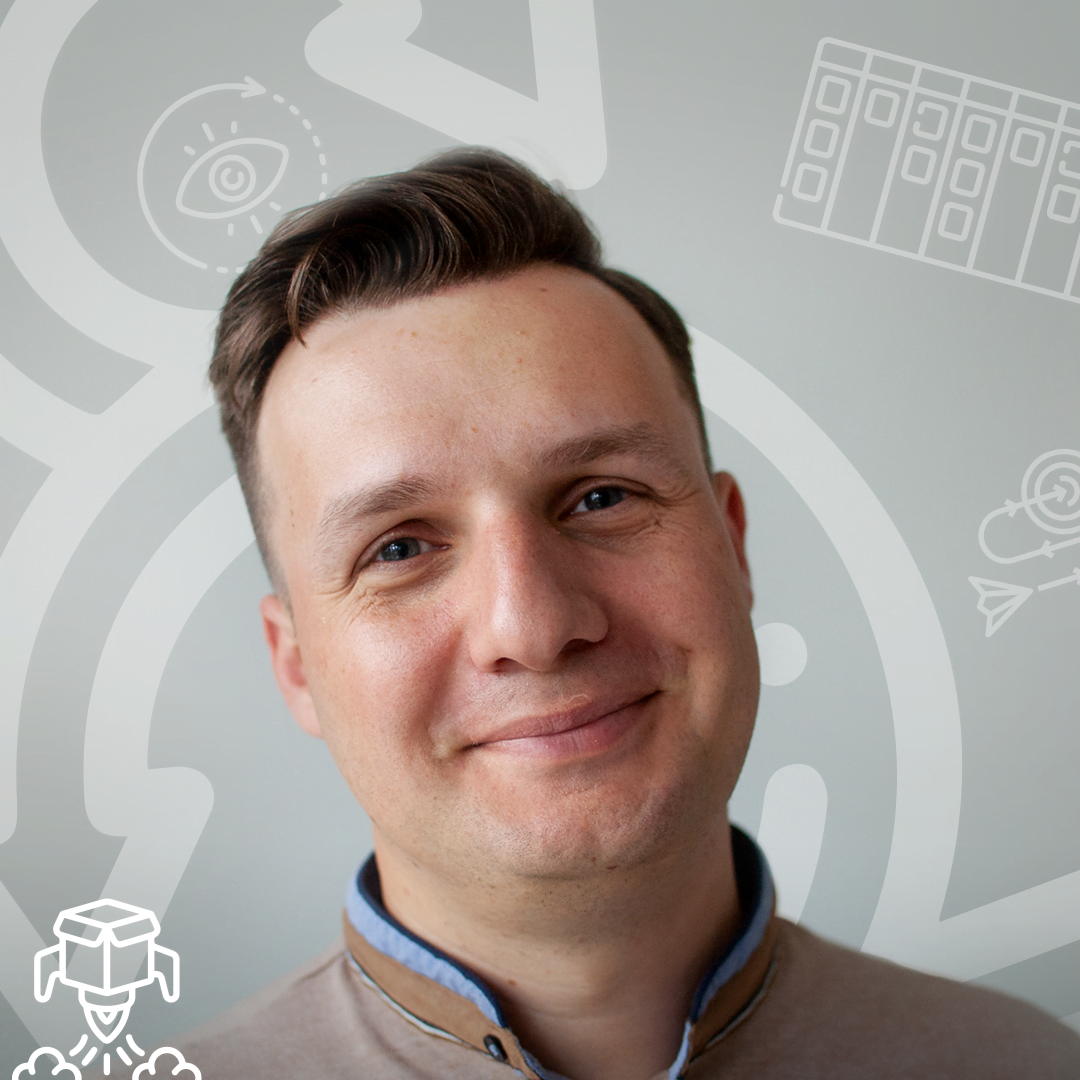
As an Agile Coach, I am on a mission to make the company more agile…
read more
Is working as a developer in the gamedev sector different from working in other branches…
read more
The story of Ten Square Games may sound like a fairy tale: from a 10…
read more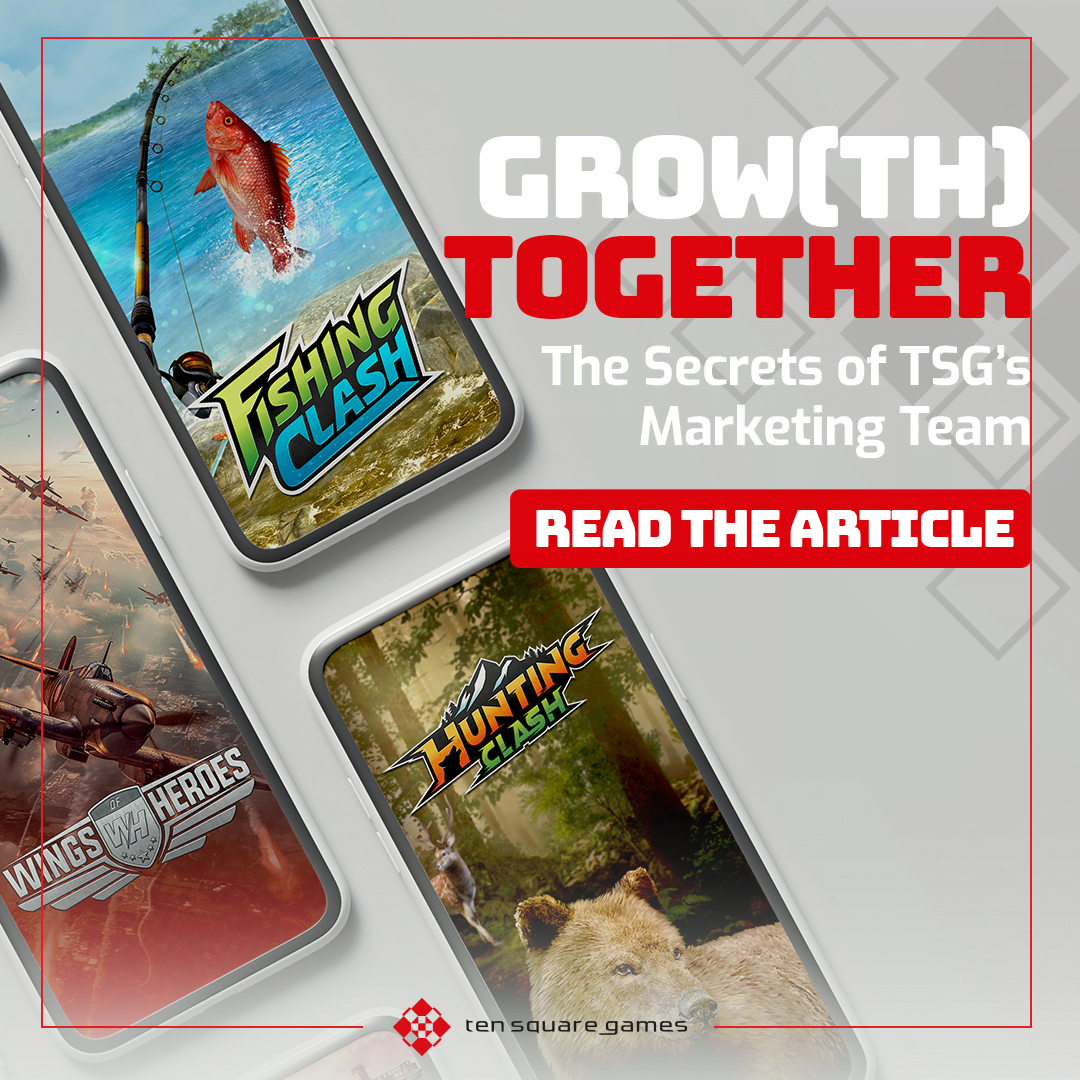
The Growth Team at TSG thrives in a fast-paced, dynamic environment, continually driving user expansion…
read more